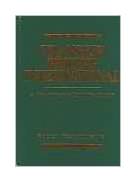|
||
• wydawnictwa polskie
• Zamów informacje o nowościach z wybranego tematu • kontakt
• Cookies na stronie |
CULTURE OF CONTENTMENTGALBRAITH J.wydawnictwo: PENGUIN , rok wydania 1992, wydanie Icena netto: Where their short-term self-interest is at stake, the contented resist change. Yet when painful decisions are needed urgently, contentment can prove disastrous ... The economically fortunate and those so aspiring-to-be have now a strong electoral position, since the underclass tends not to vote. They oppose public expenditure, except - as with defence or education for their children - where they personally stand to gain. They attack attempts to regulate corporate raiders, property speculators or junk-bond enthusiasts, yet (when inevitable disaster strikes) they demand far more costly state support for ailing banks. And all the while, as conservative ideologues cut payments for welfare and public infrastructure, future social harmony is put horribly at risk. Economic recession and violence in the great cities are already part of the picture. Galbraith's dazzling new polemic draws out these disturbing implications. 'This analysis is probably the clearest expression yet of the centre-left's unease in a period of relentless conservative hegemony. Galbraith's logic is compelling and offers a tempting vindication of those disillusioned by electoral defeat' - The Times Literary Supplement 'He writes with a verve, wit, and piquancy which enable him to dance away with the writing honours from his fellow economists buried in a treacly morass of difficult terminology and arcane mathematics' - Irish Times' 'His funniest and most serious book to. date' - Guardian 'A bombshell of a book ... I know of no book that treats more incisively or more convincingly the profoundly injurious consequences of [recent] policies to our economy' - The New York Times Book Review Księgarnia nie działa. Nie odpowiadamy na pytania i nie realizujemy zamówien. Do odwolania !. |


